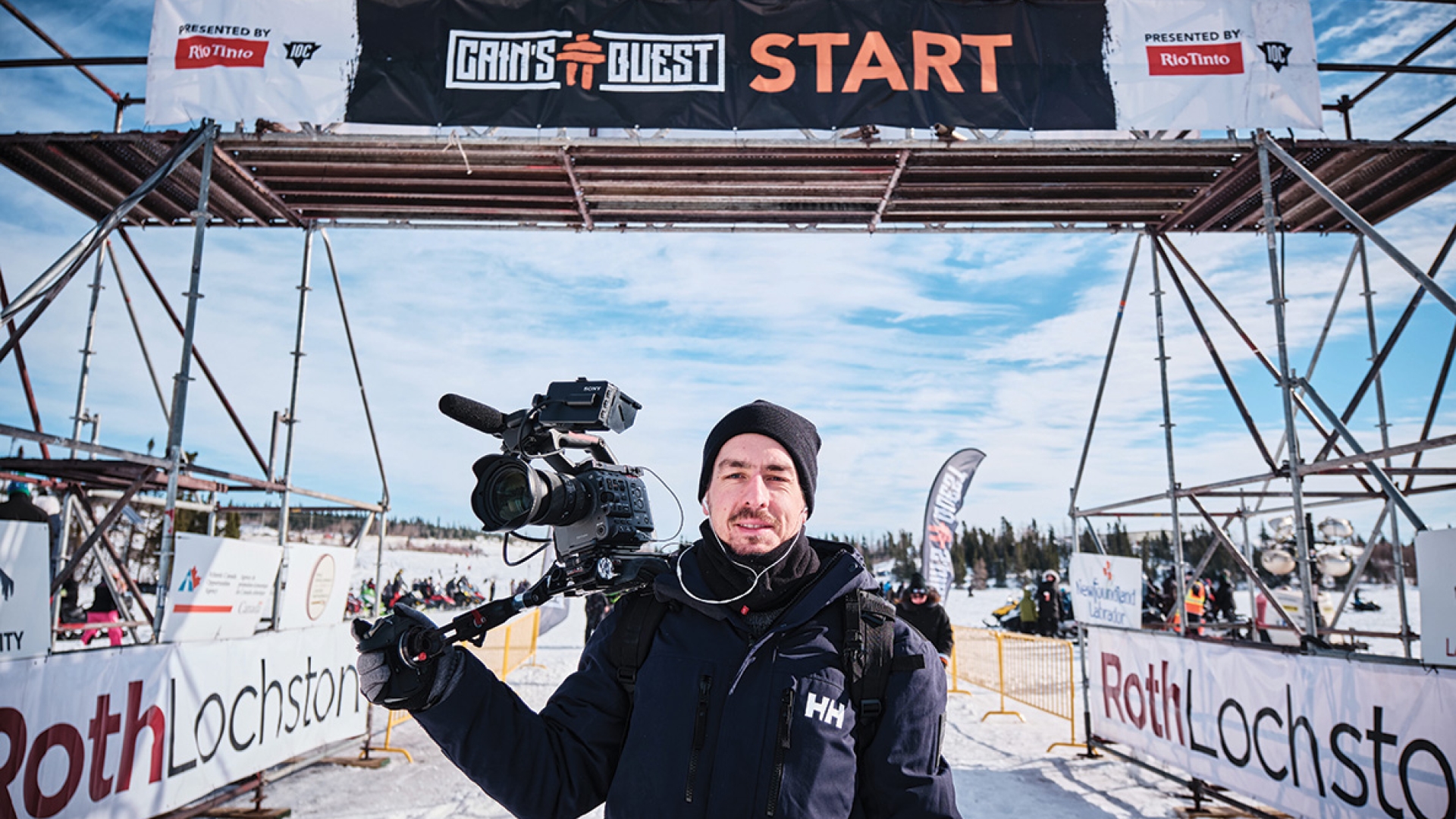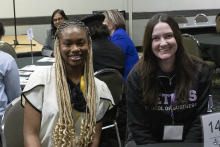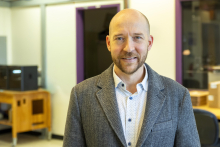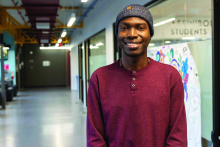Creative media grads emphasize importance of well-rounded education
January 8, 2025
“I went in wanting to learn how to become a broadcast reporter, but learning the technical aspect of the business – shooting, editing, audio and studio roles – has given me a good foundation to make it as long as I have in a challenging but rewarding industry.”
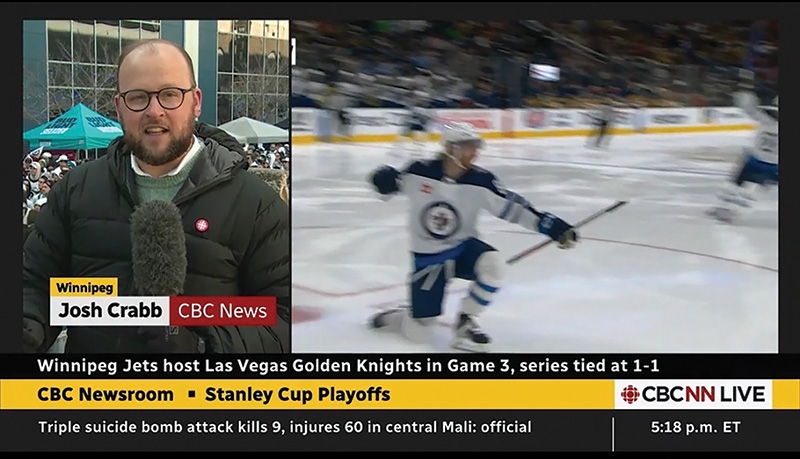
That’s Assiniboine Creative Media and Communications grad Josh Crabb, who works as a reporter/editor with CBC Winnipeg. Connecting with several program alumni this year, the range of opportunities that the program created for them is clear, as well as the opportunities and challenges that exist for current and future graduates of the program.
Four months before graduating from the program, Brice Perkins already had a job lined up with Global News Saskatoon as a camera operator. Since then, he has worked as a freelance technical director for several networks, including Sportsnet, TSN, CBC Sports, NBC Sports, Fox Sports, and IMG Media in England. He has worked on NHL, MLS, CFL, Tennis, Curling and many other sports events.
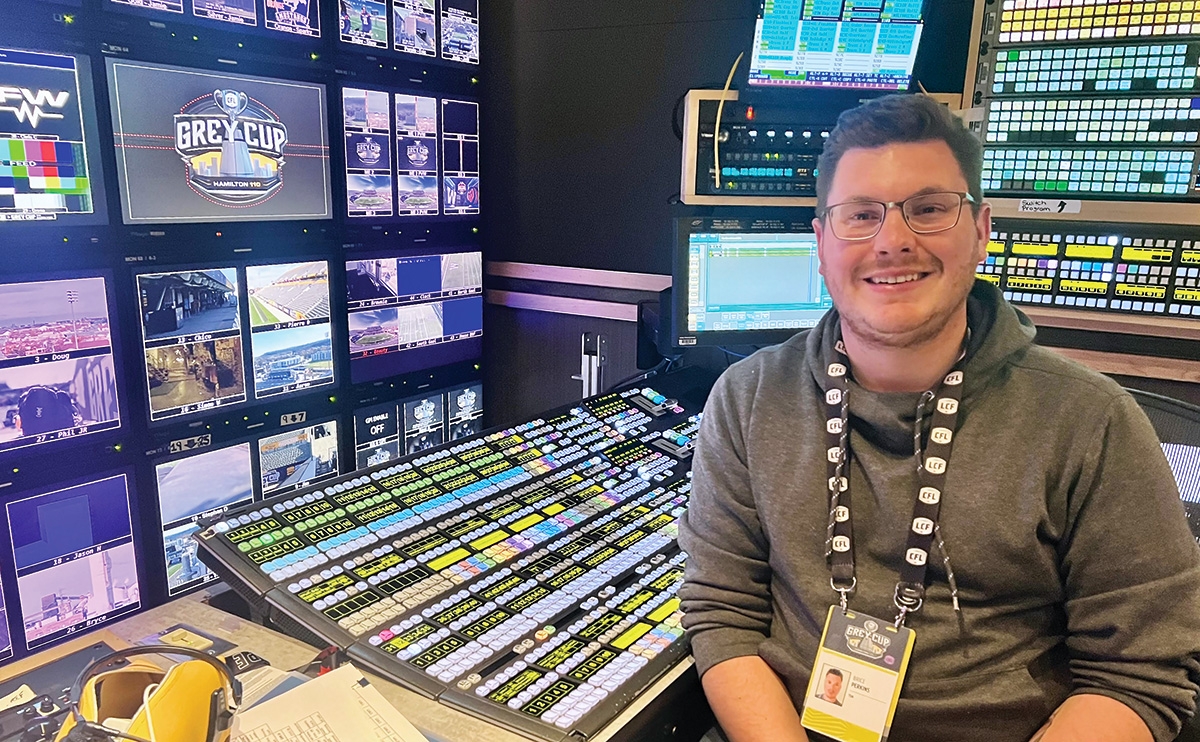
“My career in media took me to Indonesia and all-over North America, covering sporting events,” he says. “The most important tools that you will learn in the program at Assiniboine is that you will have more equipment that you will probably use once you graduate. The resources are endless and if you take the time to learn, make mistakes, and spend the extra time perfecting your craft that will help you once you step out into the real world.”
Cole Davenport echoes those comments. He is an anchor with CTV News Regina.
“The wide skillset the program gives you has come in handy. It allows me to be the jack of all trades when it comes to shooting, editing, and visual storytelling,” says Davenport.
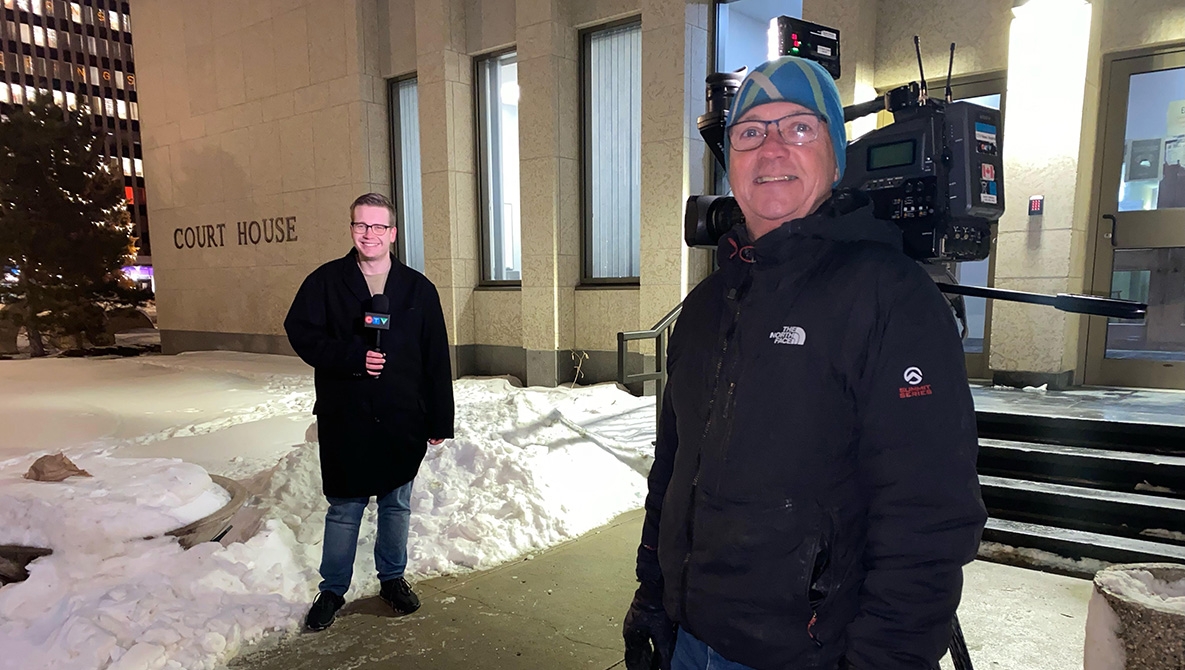
Daniel Moss, who works as a Music Operator for the Winnipeg Goldeyes, also emphasizes the value of developing a range of skills. He says that the most important thing he learned from the program was “the true variety of skills and scenarios that I was exposed to.”
“It was very useful to know at least the basics to be able to help out when needed,” he added.
Abigail Turner is a Vancouver-based reporter with CTV News. “I am so grateful to have learned how to use a camera during my time at Assiniboine. It was something that was optional at the time and has since put me in a better position today when solo-reporting.”
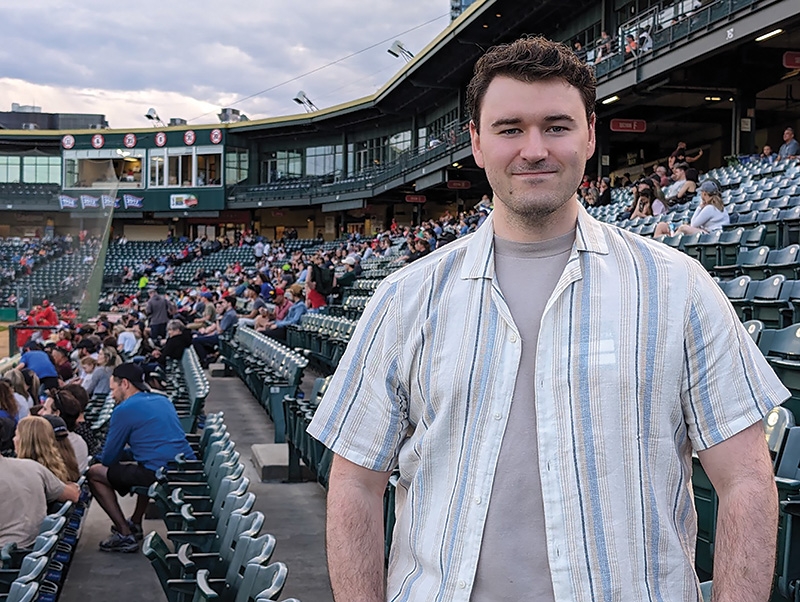
And someone who has made a career of his camera skills, Winnipeg-based filmmaker Randy Frykas, recently won an award for his Outdoor Hockey Club documentary series.
“The last few years, I’ve really tried to become someone who could just do it all. . . If it’s between yourself and someone else for the gig, you need to have those tools or skills that give you the edge,” said Frykas.
Perkins has a similar message for current and future Media and Communications students: “Learn to do everything,” he says. “If you want to work as a reporter in news you will need to know how to be a journalist, a shooter, an editor, and still write your web article at the end of the day. The industry is looking for employees that can do everything, and not be a one trick pony.”
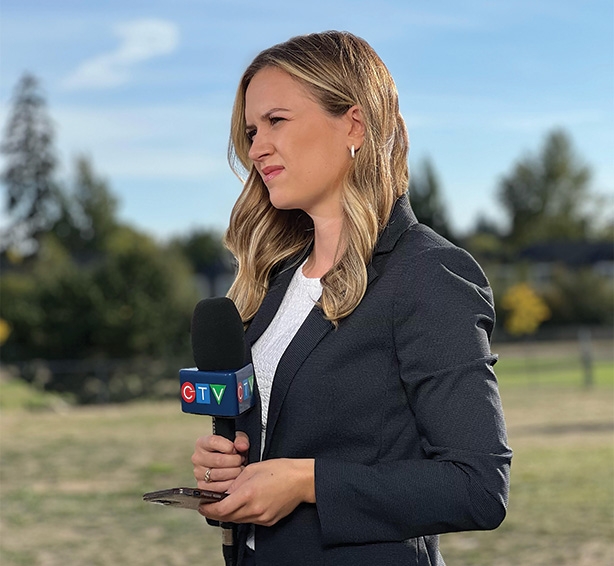
Turner agrees. “Today’s media students should focus on all aspects of journalism. Whether that’s editing, writing, filming or even finding a story – the industry is looking for people who can be a Swiss army knife.”
After many years in the media industry, Crabb, Perkins, Davenport, Moss, Turner and Frykas all say they would still choose a career in the industry if they could go back in time.
“Absolutely I would do it again,” says Davenport. “The media industry has opened so many doors for me, and even if I do decide to go into another field, it’s given me a diverse skillset to work with and adapt to anything.”
Moss puts it this way: “I’ve been very fortunate in the way that things have worked out for me. And in some ways, I couldn’t have asked for a better outcome. There have been challenges along the way, but I wouldn’t change a thing.”

